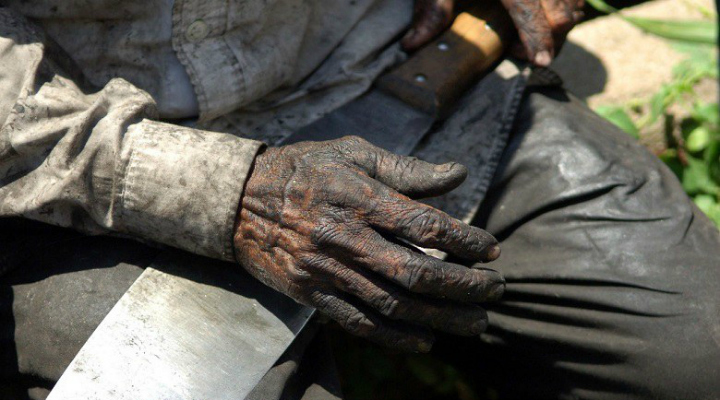Report shows risks of forced labour in food and drink supply chains
A large part of the work required in order to put food on people's plates is done by migrants, who are often subject to labour exploitation
 Foto: Renato Alves/MTE
Foto: Renato Alves/MTE
An analysis of the 60 largest food and drink companies in the world, conducted by the Business and Human Rights Resource Center in partnership with KnowTheChain, revealed that none of them reported any commitment to responsible purchasing practices in their supplier contracts. The Brazilian public can now access the Portuguese translation of the document, done by Conectas.
In practice, this means there is a risk of forced labour in their supply chains. The benchmark entitled “Food and Beverage – Benchmark Findings Report,” analyses the supply chain from agriculture, through food and drink processing, to final packaging and retail sale. The report highlights the growing gap between the sector’s profit margins and the working conditions of those who make these profits possible.
The food sector employs about two-thirds of the world’s workers. Tracking the origin of products is a challenge, but this does not exempt companies from the responsibility of ensuring that workers in the supply chain receive a fair wage, without delays and without paying recruitment fees—charges often associated with debt bondage and forced labour, for example.
Read more
The need to assess the sector is even greater given that a large part of the work required to put food on our plates is done by migrants, who are often the target of precarious labour exploitation. It is estimated that 3.2 million victims of forced labour work in the food and drink supply chain.
Analysis of responsible practices
The research aimed to assess whether companies have implemented policies to address the risks of forced labour in their supply chains and whether this has led to improvements for workers. Only half of the companies scored above 10, the maximum score being 100. Five companies did not provide any relevant information. “The generally low scores in the sector, combined with the lack of transparency from key market players, should be a wake-up call for companies and their investors.” The report states.
Of the seven assessed areas, companies performed better in areas such as Commitment and Governance, with 90% reporting that they have a code of conduct for suppliers that prohibits forced labour. However, the average score is alarming: only 16 out of 100. The lowest scores are related to the areas of recruitment, worker voice, and reparation.
The report shows that although most companies demonstrate a commitment to policies against forced labour in their supply chains, they tend to neglect preventive measures. This, combined with lack of evidence regarding the outcomes of reparations for workers, indicates that simply having internal policies is not enough to prevent forced labour and improve the lives of workers, in practice.
Accountability for violations
“This index is as an important tool for companies that wish to improve their corporate practices and an important instrument for civil society, government —and even investors — to direct their actions in a way that puts pressure on those who continue to ignore the demands of current times.” Said Marina Novaes of the Business and Human Rights Resource Center and Julia Neiva and Fernanda Drummond of Conectas, in the introduction to the publication. “After all, we advocate and fight to demand that companies take responsibility for violations that occur in their supply chains. This involves going beyond measures for reparation or actions aimed only at their direct suppliers. It means demanding and ensuring that companies adopt a broad and effective process of human rights due diligence throughout their entire supply chain, which includes preventive actions on key issues such as transparency and dialogue with unions.” They added.
The methodology used in the study follows the UN Guiding Principles on Business and Human Rights which covers political commitments, due diligence and case reparations. The research was conducted up to January 2023 and additional information was received from some companies up to April 2023.






